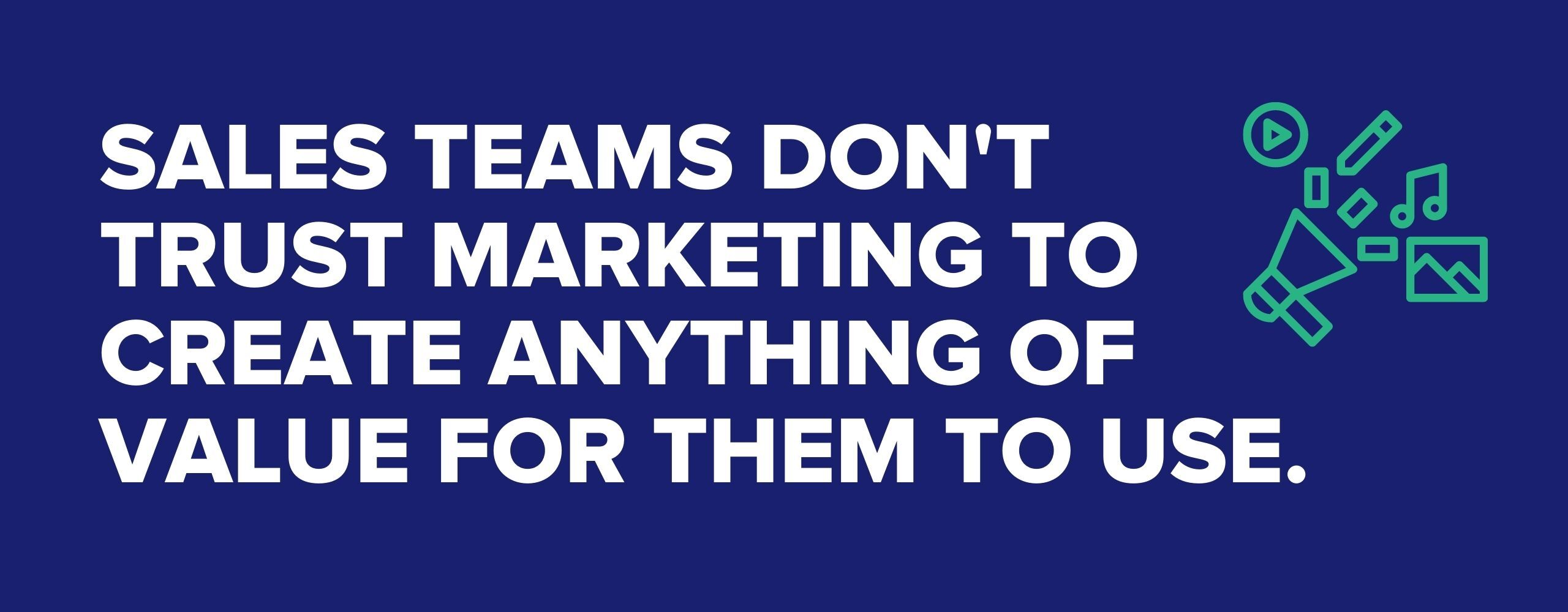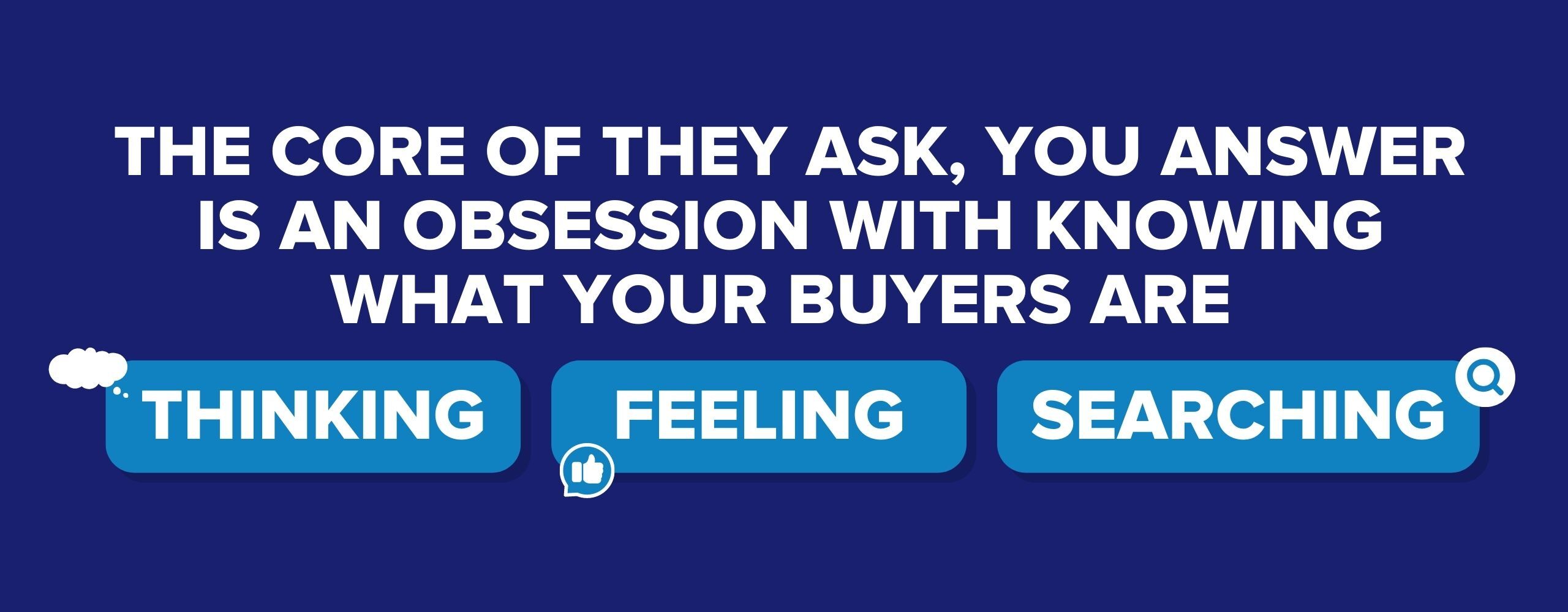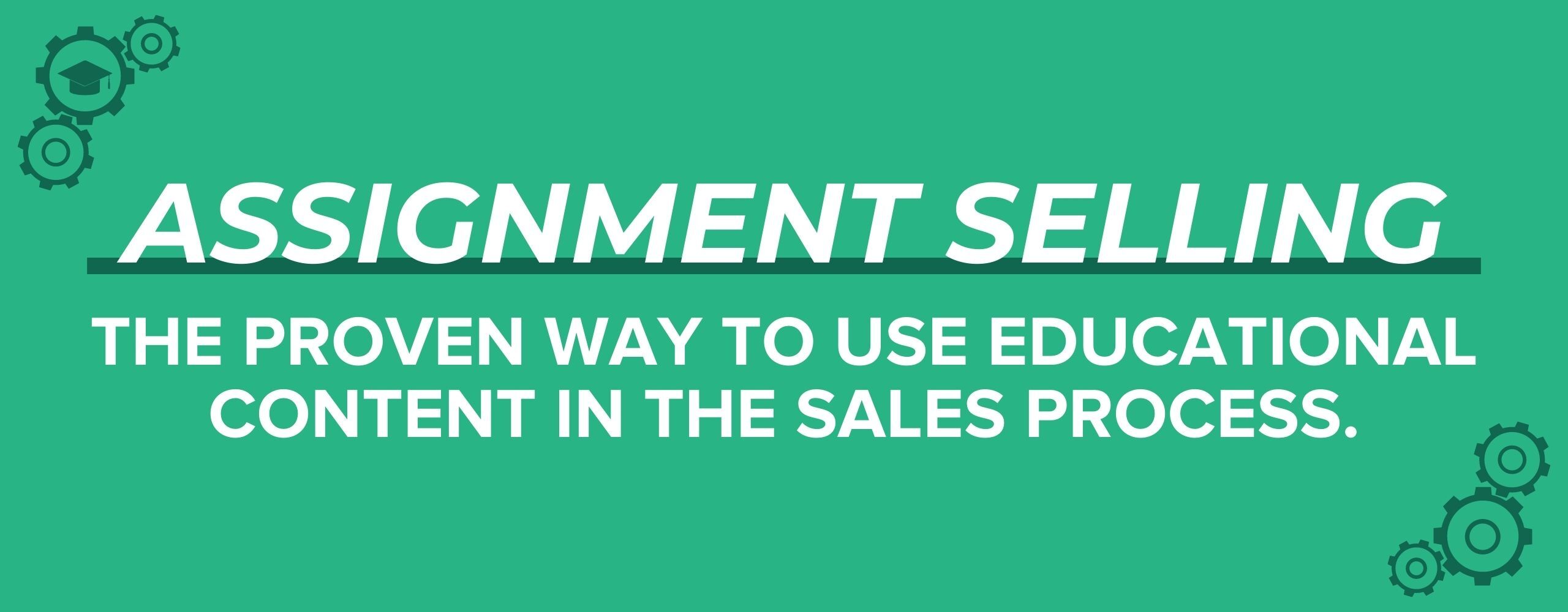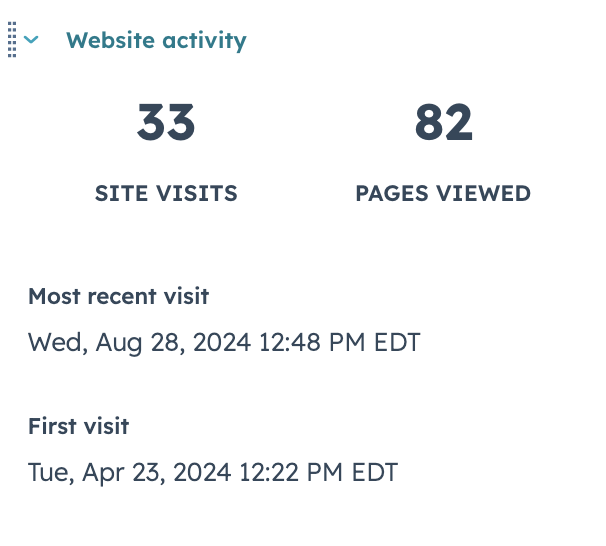Topics:
Sales & Marketing Alignment Content and Inbound Marketing 101 Getting Started with They Ask, You Answer Inbound SalesSubscribe now and get the latest podcast releases delivered straight to your inbox.
How Does They Ask, You Answer Benefit Sales?

By John Becker
Sep 12, 2024

How They Ask, You Answer benefits sales reps
- You'll understand your buyers like never before.
- You'll strengthen your sales messaging.
- 'Assignment selling' will shorten your sales cycle.
- You'll know more about your buyers before they even enter the sales funnel.
- Prospects will enter the pipeline already trusting your brand.
- Your content library will help onboard future employees.
- You'll have more time in your day to talk to good-fit prospects.
When a marketer or business leader first hears about They Ask, You Answer — whether they see Marcus Sheridan speak or they read the book — they almost always get excited.
They see the big picture.
They understand that creating written and video content to address their ideal buyers' most pressing questions and concerns will help them become the most trusted brand in their industry.
Sales folks, however, are an entirely different story.
In all fairness to sales, I do not blame them one bit for not seeing the potential of They Ask, You Answer at first.
But once they catch the vision, they'll be glad they did.
Here's why they might be skeptical at first.
Sales teams have been burned one too many times by marketing
One of the buzzy little phrases bandied about by industry pros is "sales and marketing alignment". This is a polite way of saying that these two departments — that is, sales and marketing — need to work well together. Unfortunately, that's not typically the case.
You see, what lack of "sales and marketing alignment" really means is that sales teams don't trust marketing to create anything of value for them to use. Instead, they see marketers produce fluffy content that may boost brand awareness but does little to close deals.
Marketers, on the other hand, see the sales team as people who care more about closing deals than customer loyalty and long-term brand success. 
With this kind of disconnect in place, it's no wonder that marketers feel misunderstood and sales teams don't trust anything that sounds like marketing.
To many sales pros, blogs, social media posts, and YouTube videos don't seem to do anything to bring in revenue. Instead, they sound more like expensive line items in a marketing budget.
And, honestly, those sales teams aren't wrong a lot of the time.
So, when marketers come along with a new book/vision/framework/outlook, sales has every right to be skeptical.
But this time is different. I promise.
First off, what is They Ask, You Answer?
At the core of They Ask, You Answer is a simple idea:
Educated prospects become happier, better customers.
If your prospects are asking questions, you must answer them — openly and honestly — on your website. That’s where the name for our framework comes from: They Ask, You Answer.
When you commit to answering your customers' questions, you:
- Build trust with your audience
- Weed out bad-fit prospects
- Make the buying process smoother
Why They Ask, You Answer is a sales initiative, not a marketing initiative
While many of the core tenets of They Ask, You Answer sound like marketing (content creation, blogging, YouTube, social media, website learning center), it's actually a sales-first initiative.
You see, the basics of They Ask, You Answer are simple: Address your customers' questions and concerns so it's easier for them to buy from you.
Yes, some of what you produce will drive search traffic and social media impressions, but the biggest beneficiary is ultimately the prospect entering and moving faster through the sales process.

When implemented properly, every single blog article, every video, every website page is created through the lens of what the sales team needs —based on their front-line knowledge of what their ideal buyers are thinking and asking.
When this happens, marketing materials are suddenly relevant and useful to the sales team.
Salespeople can share them with prospects, and they can feel confident that organic leads haven't been reading something on the website that's out of sync with the sales process.
However, the marketing team can't do this without the help of the sales team. Marketing doesn't speak to buyers face to face like sales does.
But when the teams work together, they can produce content that actually helps sales.
Let's dive into the specifics of how that works.
7 key benefits of They Ask, You Answer for sales
To succeed with They Ask, You Answer, the sales team and marketing team will need to collaborate. They'll meet together, run brainstorms, and check in on the content marketing produces. (Sometimes this is done in what we call a revenue team.)
I promise this is a minimal time commitment and totally worth everyone's time. here's why.
1. It forces your whole company to understand your buyers as it never has before
The core of They Ask, You Answer is an absolute obsession with knowing what your buyers are thinking, feeling, and searching.
Understanding your buyers is an all-hands-on-deck initiative.
Marketers must work with sales reps, customer service pros, and other company experts to get to know the customer before, during, and after purchase.
They need to dive into data and analytics and interview past customers.
When your company understands its customers, it can produce messaging that speaks to their needs, worries, and concerns
The result is customer-focused content that drives revenue, not vanity metrics.
2. Content production strengthens your sales messaging
Sales professionals have heard most of the questions a prospect could ever ask, and they've answered every one. They've seen which answers have satisfied customers — and which have missed the mark.
When sales teams are connected to the content production process, they sharpen the way they answer the tough questions, improving the way they communicate with clients in the future.
3. Assignment selling shortens the sales cycle
You likely know your prospect is going to ask a specific question at a specific time. Nearly everyone asks the exact same question at that time, right?
Rather than spending valuable minutes answering the question during the sales call, you send along a video or article that provides a fully-vetted answer to this question — before the prospect even answers it.
 Now, your call be more productive, and you will gain the buyer's trust in the process.
Now, your call be more productive, and you will gain the buyer's trust in the process.
This is the beauty of assignment selling — the time-tested, proven way to use educational content in the sales process.
When you have content you can trust, you can "assign" this content ahead of time to get ahead of buyer questions and objections.
4. You'll know more about your buyers before they even enter the sales funnel
With advanced sales and marketing automation and analytics platforms like HubSpot, sales teams can see every single website page, article, and video a prospect looked at prior to reaching out to talk to someone in sales.

This is priceless intelligence that will empower you to understand exactly what your prospects are interested in and how much they know about you and what you sell — all before a single sales conversation has even taken place.
That’s an incredible amount of lead intelligence right at your fingertips.
5. Prospects will enter the pipeline already trusting your brand.
When customers self-educate before speaking with a sales rep, they enter the sales process with an established relationship with your company.
They know you. They trust you.
And buyers are more likely to purchase from businesses they trust.
Sales reps can spend more time during meetings having deep conversations specific to the needs of the people they are speaking to.
That allows you to do what you do best — sell.
6. Your content library will help you train future employees
The more content you create, the more articles, videos, and more you’ll have at your disposal for current and future employees to use as training materials.
It will help them learn company doctrines, philosophies, and so on more effectively and more efficiently.
7. Great content means more trust, more trust means shorter sales cycles, shorter sales cycles mean happier sales teams
By empowering your buyers to educate themselves through the content you create and publish, you give your sales teams the gift of time.
More time to spend with qualified leads, more time at the end of the day to clock out on time.
What should we do now to get started?
It's a lot of work to get your entire company aligned around They Ask, You Answer as a way of doing business.
That's because, unlike strategies in the past, They Ask, You Answer must be embraced by all teams — leadership, sales, marketing, service, etc. It is not owned by one team or one individual. It's a cultural shift within your company, not a flash-in-the-pan tactic.
If you are in a sales role specifically and want to learn more, I would encourage you to create a free IMPACT+ account and educate yourself with the following course:
This course will arm you with the insights and knowledge you need to see an immediate lift in your close rates by embracing the principles of They Ask, You Answer.
Yes, it's likely a significant departure from "the way it's always been done" at your company. But trust me, the results will speak for themselves.


Order Your Copy of Marcus Sheridan's New Book — Endless Customers!